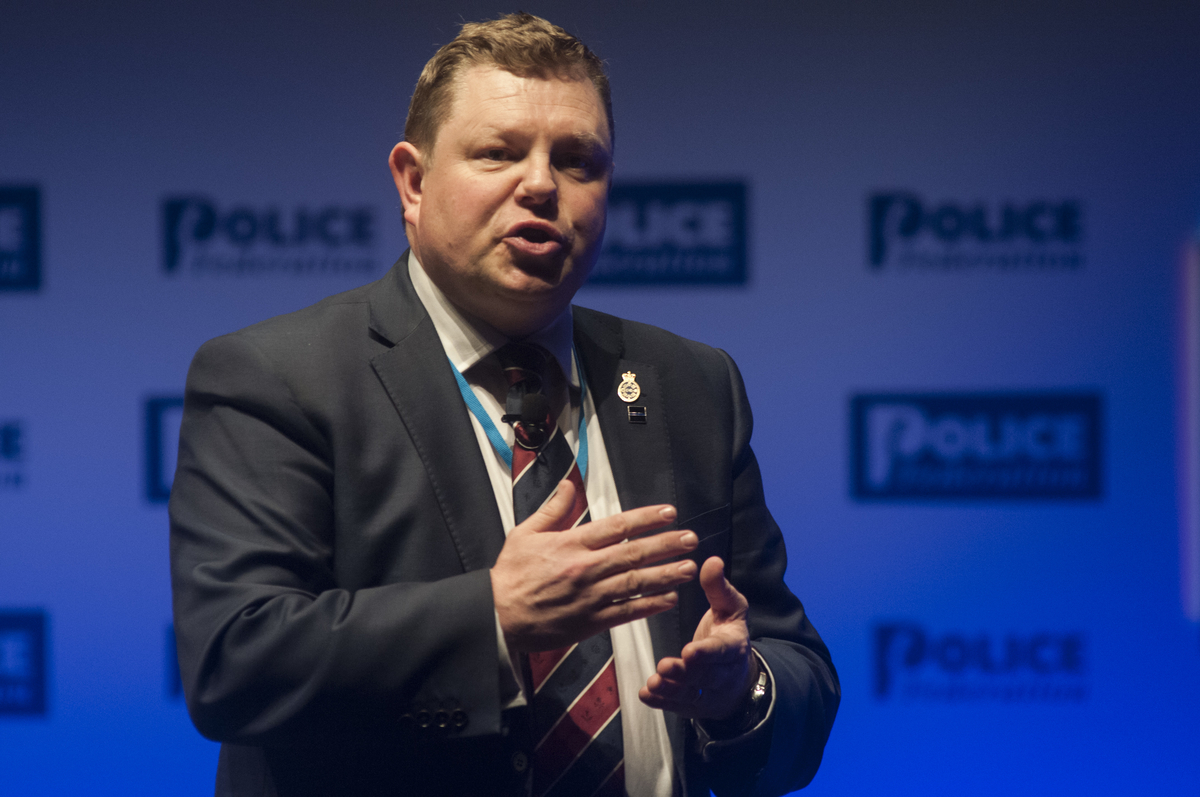Assaults on our police officers are “never acceptable”
A POLICE officer being assaulted “must never ever, ever be acceptable, the Police Federation of England and Wales conference has been told.
It is a disgrace that there is no national picture of assaults on police officers, Hampshire Police Federation chairman John Apter (pictured) said. He called for a change in the way that data is collected, saying that at the moment the figures on the assaults only show half the picture.
In a session on police officer assaults, he told delegates: “You can only deal with the problem when you know what the problem is. The data we have now is only half the picture. When the whole picture comes out it will show the true nature of policing and that is something the public needs to see.”
Conference heard the good work that Hampshire has done in tackling officer assaults, including a guideline that officers should never investigate an assault on themselves, and Mr Apter urged all forces to adapt their seven-point action plan for their own use.
Assistant Chief Officer Nicole Cornelius, who is part of the Hampshire gold working group on officer assaults, said the current system of recording assaults through the health and safety monitoring system is “not good enough”.
She said: “Until we all have the same standards and accurate recording we not going to get a complete picture. There is no national official monitoring on police assaults. It is not good enough.
“We need to show that forces are concerned enough to show how many times their officers are assaulted.”
Chief Superintendent Scott Chilton told delegates that forces must not forget the human factor when their officers are assaulted and criticised an “unnerving acceptance” that being attacked is just part of the job.
He said: “In 23 years in the police service, I’ve never accepted it’s part of the job to be assaulted but many people do. There is an unnerving acceptance that it’s ok to be spat at, punched or kicked because that’s part of being a police officer.
“Now is the time to step up to the mark and value our officers and show the true care they deserve. We must consider the human factor because data doesn’t tell the true picture.
“The impact of assaults is not only physical, and for an officer’s family it can quite devastating. If we can’t look after our own, what does that say for how we will look after victims? How does that make them feel if we can’t do that?
“Legitimacy in policing is crucial – it’s about policing with consent. Putting our own staff at the core of what we do is part of demonstrating to the public that we are providing an excellent service. It’s really important to get back to basics when we are supporting officers who have been assaulted. If we don’t look after our own staff, we’ve got real problems.”
Hampshire has increased the number of officers who have Taser to increase their protection in the face of cuts to frontline bobbies – the force has lost 1,000 officers in the past five years.
Mr Apter said: “I’d always rather have more people but if you have fewer officers you have to find a way to protect them. Taser is a method to work with the number of officers that we have with better protection.
“Policing is dangerous and upredictable. For our colleagues to say it is an acceptable part of the job is not acceptable. Being assaulted must never ever be acceptable.”

